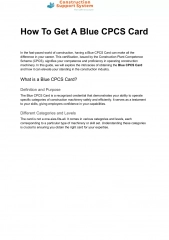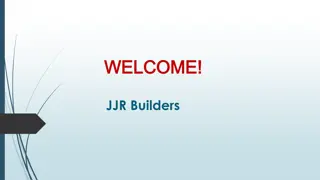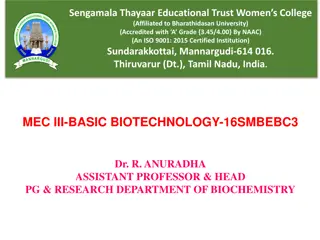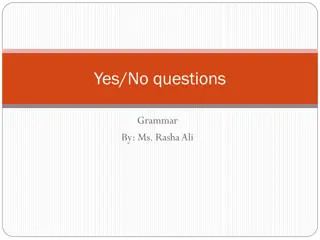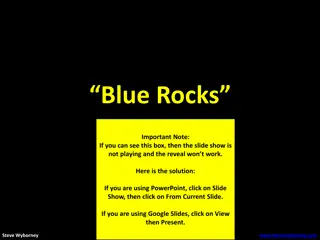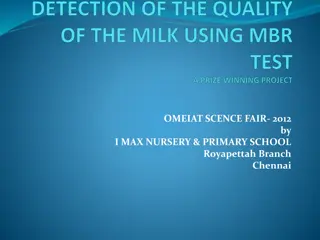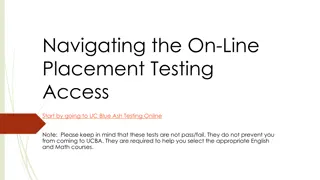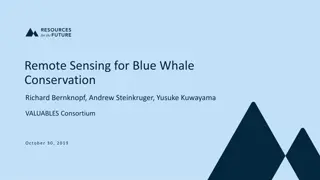
Boaz and Ruth in the Book of Ruth
Explore the descriptions of Boaz and Ruth in the Book of Ruth, including Boaz's character, Ruth's work environment, and interactions with Boaz's overseer. Learn how Boaz greeted his harvesters and the overseer's report about Ruth. Dive into the narrative to uncover the richness of these biblical figures.
Download Presentation

Please find below an Image/Link to download the presentation.
The content on the website is provided AS IS for your information and personal use only. It may not be sold, licensed, or shared on other websites without obtaining consent from the author. If you encounter any issues during the download, it is possible that the publisher has removed the file from their server.
You are allowed to download the files provided on this website for personal or commercial use, subject to the condition that they are used lawfully. All files are the property of their respective owners.
The content on the website is provided AS IS for your information and personal use only. It may not be sold, licensed, or shared on other websites without obtaining consent from the author.
E N D
Presentation Transcript
Dig Site 19 Blue Level Questions
How does the Bible describe Boaz? (2:1) 1. He was a relative of Naomi s husband and was a man of standing. 2. He owned 17 fields. 3. He treated his workers poorly. 4. All of the above.
How does the Bible describe Boaz? (2:1) 1. He was a relative of Naomi s husband and was a man of standing. 2. He owned 17 fields. 3. He treated his workers poorly. 4. All of the above.
Where did Ruth find herself working? (2:3) 1. In a field belonging to Elimelek s mother 2. In a mill where people brought their grain 3. In a field belonging to Boaz 4. All of the above
Where did Ruth find herself working? (2:3) 1. In a field belonging to Elimelek s mother 2. In a mill where people brought their grain 3. In a field belonging to Boaz 4. All of the above
How did Boaz greet his harvesters when he returned from Bethlehem? (2:4) 1. The Lord be with you! 2. The Lord bless you! 3. May God bless you richly! 4. Good afternoon, hard workers.
How did Boaz greet his harvesters when he returned from Bethlehem? (2:4) 1. The Lord be with you! 2. The Lord bless you! 3. May God bless you richly! 4. Good afternoon, hard workers.
What did the overseer tell Boaz about Ruth? (2:6-7) 1. She asked to work in the fields and had come from Moab with Naomi. 2. She didn t work very hard. 3. She was married. 4. All of the above
What did the overseer tell Boaz about Ruth? (2:6-7) 1. She asked to work in the fields and had come from Moab with Naomi. 2. She didn t work very hard. 3. She was married. 4. All of the above
What instructions did Boaz give Ruth about harvesting in his field? (2:9) 1. To ask the overseer where to harvest and stay for lunch 2. To harvest after the women and drink water whenever she was thirsty 3. To harvest only on the south side of the field and bring her own lunch 4. To harvest along with the women and leave after lunch
What instructions did Boaz give Ruth about harvesting in his field? (2:9) 1. To ask the overseer where to harvest and stay for lunch 2. To harvest after the women and drink water whenever she was thirsty 3. To harvest only on the south side of the field and bring her own lunch 4. To harvest along with the women and leave after lunch
How did Ruth respond to Boazs offer to let her work in his fields? (2:10) 1. Thank you, sir. But why are you being so nice to me, a foreigner? 2. Sir, why are you talking to me a foreigner? 3. Thank you. I am Naomi s daughter-in- law. 4. Why have I found such favor in your eyes that you notice me a foreigner?
How did Ruth respond to Boazs offer to let her work in his fields? (2:10) 1. Thank you, sir. But why are you being so nice to me, a foreigner? 2. Sir, why are you talking to me a foreigner? 3. Thank you. I am Naomi s daughter-in- law. 4. Why have I found such favor in your eyes that you notice me a foreigner?
What had Boaz heard about Ruth? (2:11) 1. That she had left her parents and her homeland 2. All she had done for Naomi 3. That she had come to live with a people she did not know 4. All of the above
What had Boaz heard about Ruth? (2:11) 1. That she had left her parents and her homeland 2. All she had done for Naomi 3. That she had come to live with a people she did not know 4. All of the above
Who did Boaz ask to richly reward Ruth? (2:12) 1. Naomi 2. The God of Israel 3. The god of the Moabites 4. The overseer
Who did Boaz ask to richly reward Ruth? (2:12) 1. Naomi 2. The God of Israel 3. The god of the Moabites 4. The overseer
According to Boaz, what had Ruth done with the God of Israel? (2:12) 1. Taken refuge under His wings 2. Done honorable deeds for Him 3. Followed Him wholeheartedly 4. Helped Naomi get back to Bethlehem
According to Boaz, what had Ruth done with the God of Israel? (2:12) 1. Taken refuge under His wings 2. Done honorable deeds for Him 3. Followed Him wholeheartedly 4. Helped Naomi get back to Bethlehem
How did Boaz treat Ruth at mealtime? (2:14) 1. He did not allow her to eat the same food as the others. 2. He allowed her to eat with his workers. 3. He treated her like an outsider. 4. She had to eat away from the workers.
How did Boaz treat Ruth at mealtime? (2:14) 1. He did not allow her to eat the same food as the others. 2. He allowed her to eat with his workers. 3. He treated her like an outsider. 4. She had to eat away from the workers.
What instructions did Boaz give his men concerning Ruth? (2:15-16) 1. Let her gather among the sheaves. 2. Pull out some stalks for her from the bundles. 3. Don t rebuke her. 4. All of the above
What instructions did Boaz give his men concerning Ruth? (2:15-16) 1. Let her gather among the sheaves. 2. Pull out some stalks for her from the bundles. 3. Don t rebuke her. 4. All of the above
What did Ruth take back to town after her day in the fields? (2:17-18) 1. Boaz 2. Barley she gathered 3. Fruits and vegetables 4. All of the above
What did Ruth take back to town after her day in the fields? (2:17-18) 1. Boaz 2. Barley she gathered 3. Fruits and vegetables 4. All of the above
What was the phrase Naomi used to describe Boaz? (2:20) 1. Friendly overseer 2. Guardian-redeemer 3. Land owner 4. Land redeemer
What was the phrase Naomi used to describe Boaz? (2:20) 1. Friendly overseer 2. Guardian-redeemer 3. Land owner 4. Land redeemer
What did Naomi think about Ruth working in the fields that belonged to Boaz? (2:22) 1. 2. She wanted Ruth to go to another field. She thought it was good for Ruth to stay and work there. It did not matter to her, as long as Ruth could get food. She thought Ruth should leave and find a husband. 3. 4.
What did Naomi think about Ruth working in the fields that belonged to Boaz? (2:22) 1. 2. She wanted Ruth to go to another field. She thought it was good for Ruth to stay and work there. It did not matter to her, as long as Ruth could get food. She thought Ruth should leave and find a husband. 3. 4.
How did Ruth take care of Naomi while they were in Bethlehem? (2:23) 1. She became one of Boaz s house servants and lived with Naomi. 2. She gleaned grain and lived with her mother-in-law. 3. She worked at the mill and lived with Naomi. 4. She and Naomi planted their own wheat field.
How did Ruth take care of Naomi while they were in Bethlehem? (2:23) 1. She became one of Boaz s house servants and lived with Naomi. 2. She gleaned grain and lived with her mother-in-law. 3. She worked at the mill and lived with Naomi. 4. She and Naomi planted their own wheat field.
What did Ruth glean from Boazs field? (2:23) 1. Corn and beans 2. Wheat and corn 3. Barley and wheat 4. Beans and barley
What did Ruth glean from Boazs field? (2:23) 1. Corn and beans 2. Wheat and corn 3. Barley and wheat 4. Beans and barley
Finish this verse: Share with the Lord s people (Romans 12:13) 1. and give them what you do not want. 2. who are in need. Practice hospitality. 3. always. Be willing to provide for them when they are in need. 4. and those who are in need. Love them as Christ loved you.
Finish this verse: Share with the Lord s people (Romans 12:13) 1. and give them what you do not want. 2. who are in need. Practice hospitality. 3. always. Be willing to provide for them when they are in need. 4. and those who are in need. Love them as Christ loved you.


